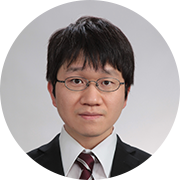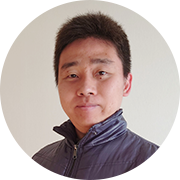Presenting Fujitsu’s AI Technologies to the world at NeurIPS 2022
January 30, 2023
Japanese
Fujitsu is proud to announce that two AI research projects have been selected for the "NeurIPS (Neural Information Processing Systems) 2022", the world's leading international conference on AI. NeurIPS is regarded as the most important international conference on the subject of AI, with papers submitted from universities, research institutes, and companies all over the world. Getting accepted is a highly competitive process, with only around 25% of submissions being successful.
On this occasion, Fujitsu put forward two joint research topics, both of which will be presented at NeurIPS 2022. The first involves our work with Duke University in the United States, focusing on "AI technology that enumerates all possibilities of explanation and action". The second is a joint research result with the Indian Institute of Science on "Adaptive AI Model Generation Technology ".
About NeurIPS 2022
- Conference: Neural Information Processing Systems (NeurIPS)
- Date: November 28, - December 9, 2022
- Venue: New Orleans, Louisiana, USA
- ①Title: Exploring the Whole Rashomon Set of Sparse Decision Trees
- Authors:(Fujitsu) Takuya Takagi
(Duke University) Rui Xin, Chudi Zhong, Zhi Chen, Cynthia Rudin
(University of British Columbia) Margo Seltzer
- ②Title: Cost-Sensitive Self-Training for Optimizing Non-Decomposable Metrics
- Authors:(Fujitsu) Sho Takemori, Takashi Kato, Yuhei Umeda
(Indian Institute of Science) Harsh Rangwani, Shrinivas Ramasubramanian, Venkatesh Babu Radhakrishnan
① AI technology that enumerates all possibilities of explanation and action
Exploring the Whole Rashomon Set of Sparse Decision Trees
Fujitsu and Duke University have developed a technique to guide users towards discoveries, without missing important supporting explanations when explaining data from AI models.
AI models that can be built from data sometimes use white-box models that can explain how the model works and how predictions are generated. However, this explanation itself can lead to incorrect explanations, and if the knowledge is already known to the user, it can hinder the process of discovering new knowledge or actions.
In the machine learning field, there are often situations involving multiple models that give different explanations while still being able to predict with high accuracy. This type of model set is known as the "Rashomon set", referring to the movie "Rashomon," in which multiple testimonies and interpretations are derived from a single event. In the past, it has not been possible to construct the "Rashomon set" simply because of the enormous amount of computation time required.
Our approach involves constructing a "Rashomon set" of decision tree models, detailing all of the models showing the highest accuracy as well as any models with almost the same accuracy.
Our technology uses analytic boundaries to prove that a large portion of the search space does not contain members of the Rashomon set and therefore can be safely excluded. This allows us to focus only on the portion of the space containing the Rashomon set. Also, by storing the Rashomon set in a specialized data structure, we are able to provide memory-efficient storage and easy indexing of the Rashomon set's members.
The combination of these boundaries with efficient representation allows us to provide, for the first time, a complete enumeration of the Rashomon set of sparse decision trees in a real-world data set.
In the future, we plan to expand the use of this technology in the field of knowledge discovery, such as discovering unexpected customer behavior and creating new rules in marketing, as well as discovering production line features that lead to high production efficiency at production sites.
- Technical Details:A method for constructing Rashomon sets for decision trees is presented at NeurIPS2022.
 (Fujitsu Research TECH BLOG)
(Fujitsu Research TECH BLOG)
Developer Comments

Duke University
Rui Xin
Duke University
Chudi Zhong
Duke University
Zhi Chen
Fujitsu Artificial Intelligence Laboratory
Takuya Takagi
University of British Columbia
Margo Seltzer
Duke University
Cynthia Rudin
Our project team has been developing AI technologies to help discover new knowledge. This result is a significant achievement that opens up the ability of explainable AI to develop important new insights. We plan to develop this technology further and contribute to society by deploying services that can significantly improve the discovery process in a wide range of fields.
② Adaptive AI Model Generation Technology
Cost-Sensitive Self-Training for Optimizing Non-Decomposable Metrics
Fujitsu and the Indian Institute of Science (IISc) have developed a technology to produce deep learning models that can automatically satisfy complex user specifications.
In machine learning, including deep learning, the user instructs the AI regarding the user performance specification, for example, to maximize the true positive (detection rate) of defective products. As a result, the AI learns rules from the input data that will enable the user to achieve the desired specifications. In recent years, however, the required levels of user specifications for deep learning have become increasingly complex, such as maximizing the true positive while keeping the false positive rate below a certain level. Due to a problem known as non-differentiability, such complex performance specifications cannot be realized by AI, because it is not able to search for rules from the data. Therefore, in the past, AI had to create models by compromising the user specifications to those for which it could find rules, and thus was unable to create models that adequately satisfied users’ expectation requirements.
Our newly developed technology combines IISc’s advanced knowledge of deep learning with Fujitsu’s long-standing knowledge of adaptive AI technology.
With our approach, the model repeatedly modifies compromised instructions during the deep learning model training process in order to get closer to the original specification, finally learning to achieve the desired performance. This enables us to realize complex user specifications that were previously difficult to achieve directly. Our work also enables the model to utilize additional unlabeled data to improve its performance even further.
IISc and Fujitsu will continue to work together to explore the use of this technology in the manufacturing and healthcare fields.
- Technical Details:"Cost-Sensitive Self-Training for Optimizing Non-Decomposable Metrics" presented on NeurIPS 2022
 (Fujitsu Research TECH BLOG)
(Fujitsu Research TECH BLOG)
Developer Comments

Indian Institute of Science
Harsh Rangwani
Indian Institute of Science
Shrinivas Ramasubramanian
Fujitsu Artificial Intelligence Laboratory
Sho Takemori
Fujitsu Artificial Intelligence Laboratory
Takashi Kato
Fujitsu Artificial Intelligence Laboratory
Yuhei Umeda
Indian Institute of Science
Venkatesh Babu Radhakrishnan
As part of our project, we are developing cutting-edge AI technology that can respond to changes in the environment and any changes to user specifications while still achieving good performance. In the paper accepted by NeurIPS 2022, we have developed technology to create deep learning models that satisfy users’ desired specifications with high precision. In the future, we aim to develop technologies that maximize value by responding to environmental changes and requests. Our goal is to make a valued contribution to society through our work, presenting our cutting-edge AI research results at prestigious international conferences and promoting its application to services in various fields.
Related links
・Fujitsu launches new research center in India, embarking on joint R&D with leading Indian universities to accelerate innovation in AI and machine learning ![]() (April 18, 2022 Press Released)
(April 18, 2022 Press Released)
For more information on this topic
contact-neuripspaper2022@cs.labs.fujitsu.com
Please note that we would like to ask the people who reside in EEA (European Economic Area) to contact us at the following address.
Ask Fujitsu
Tel: +44-12-3579-7711
http://www.fujitsu.com/uk/contact/index.html![]()



